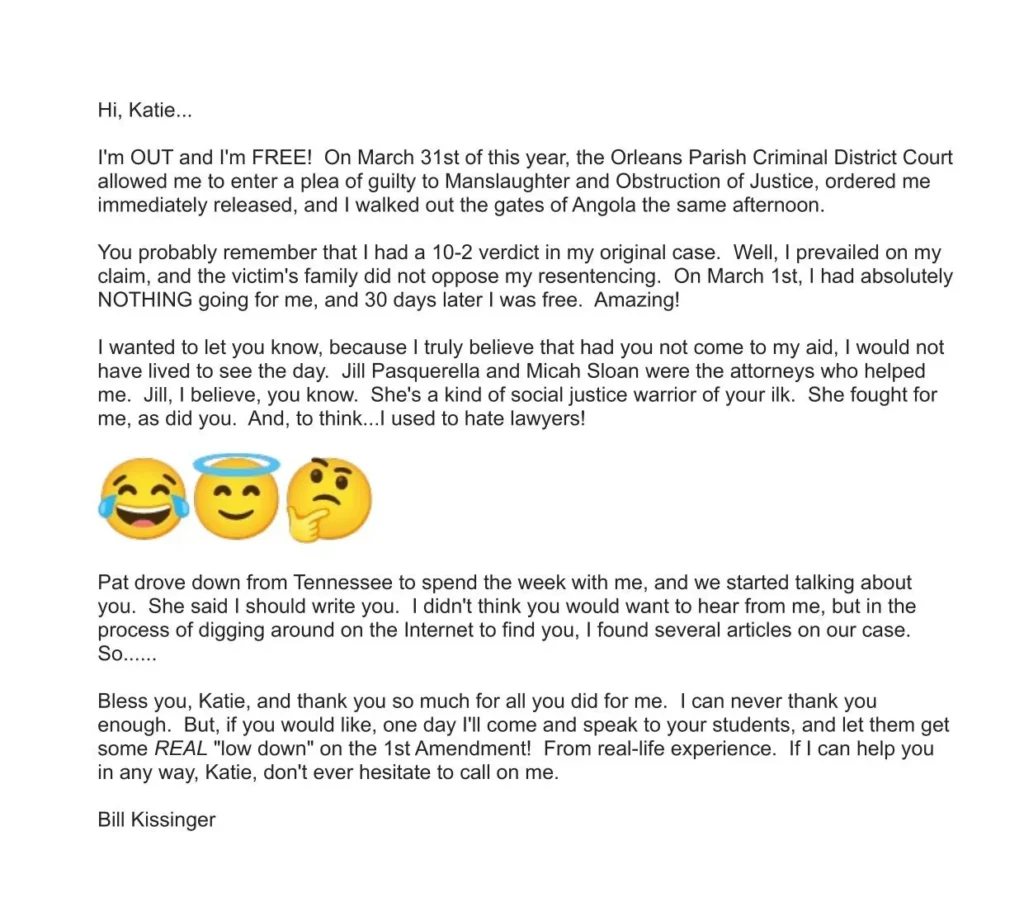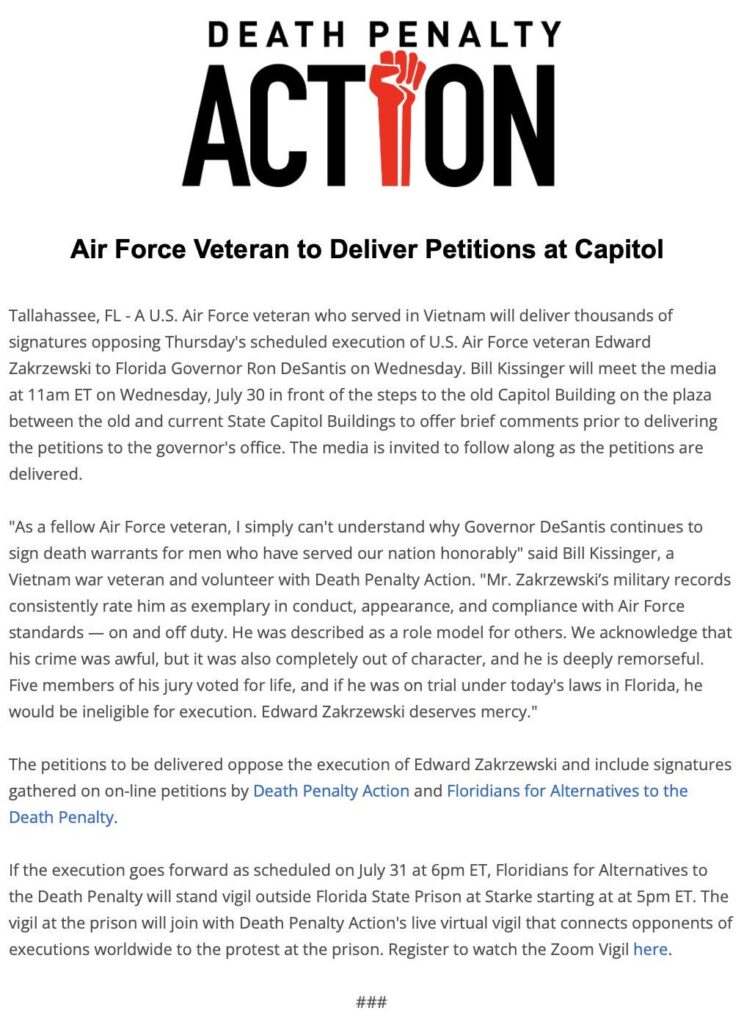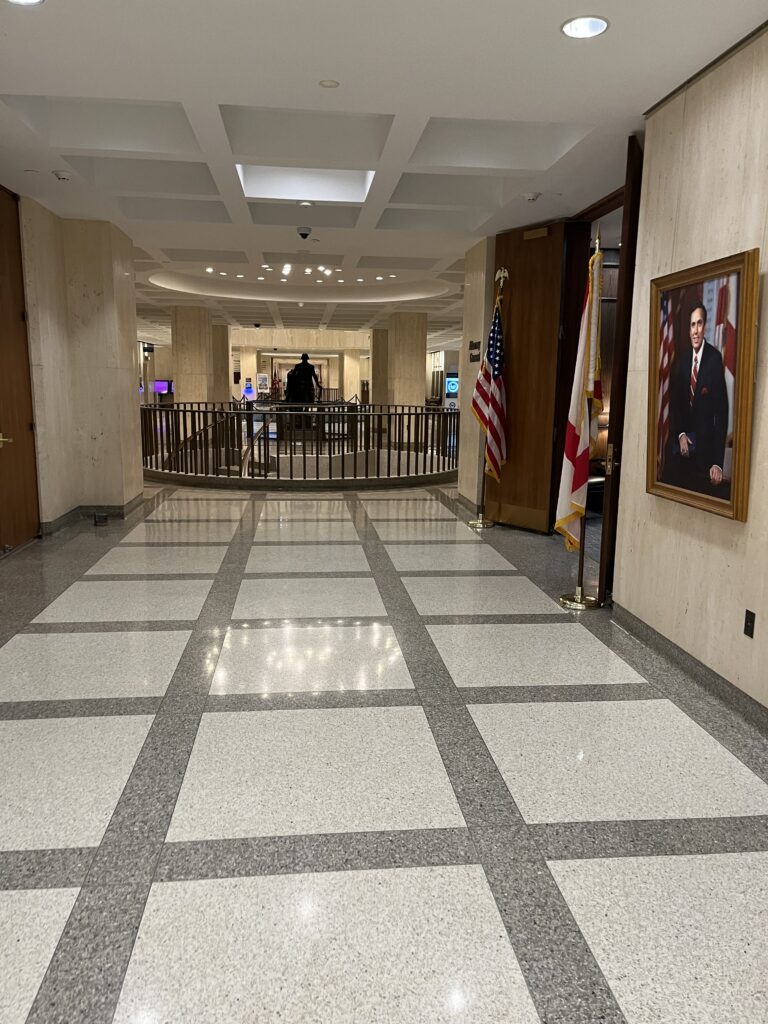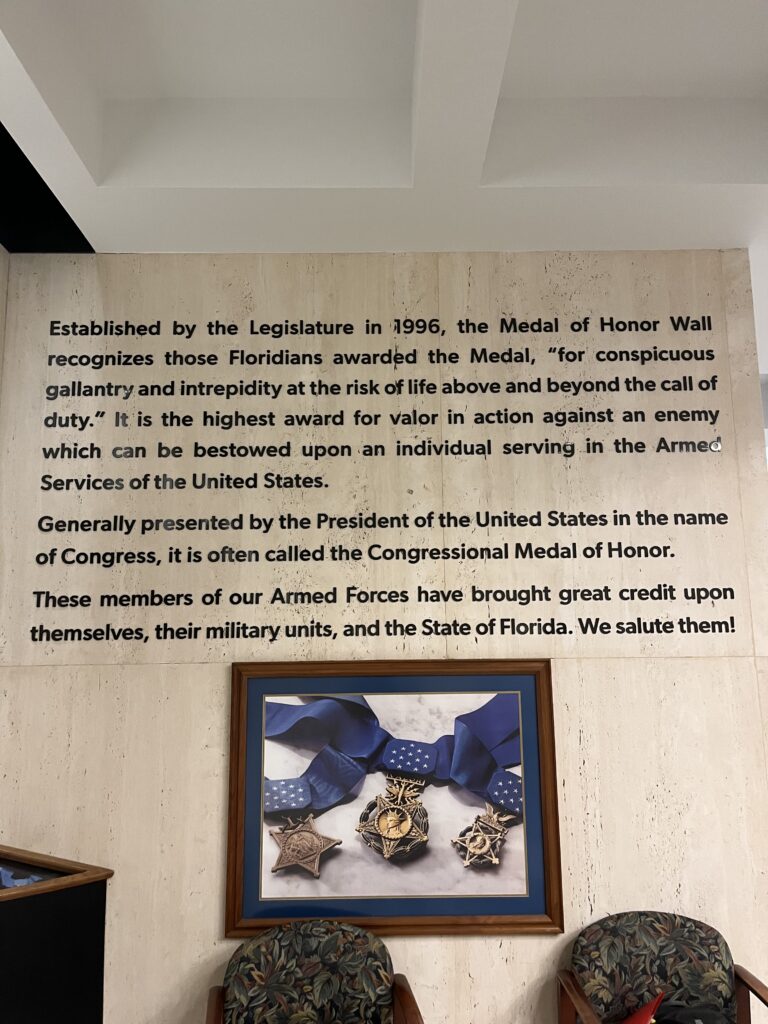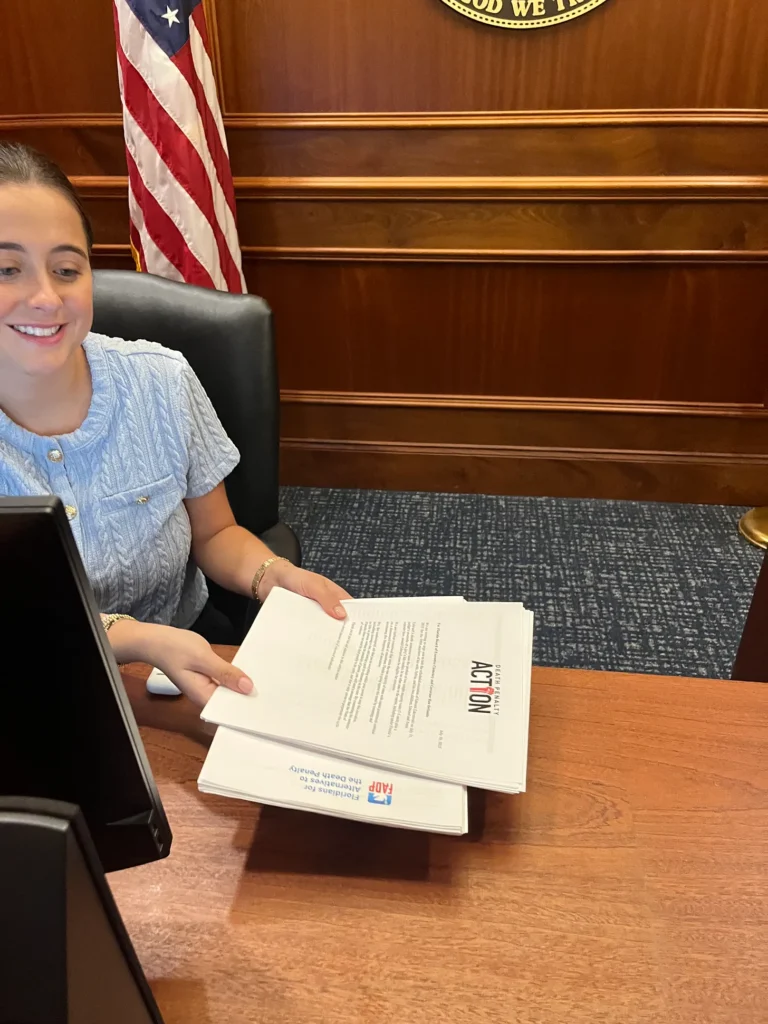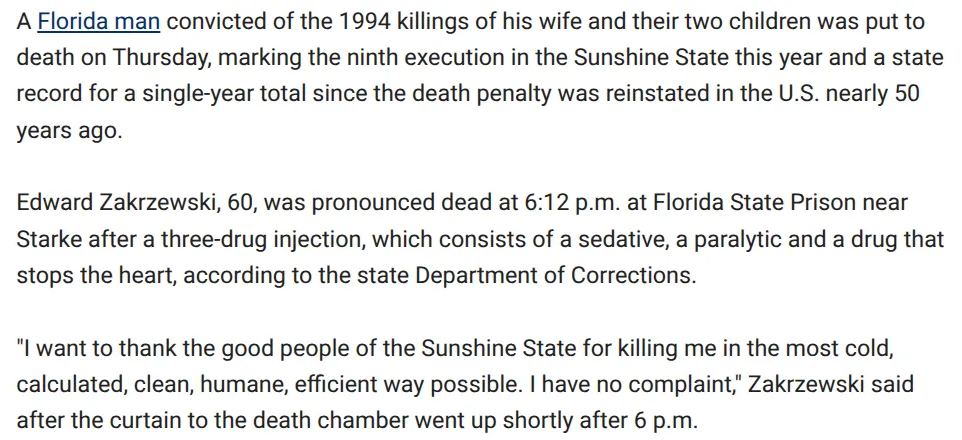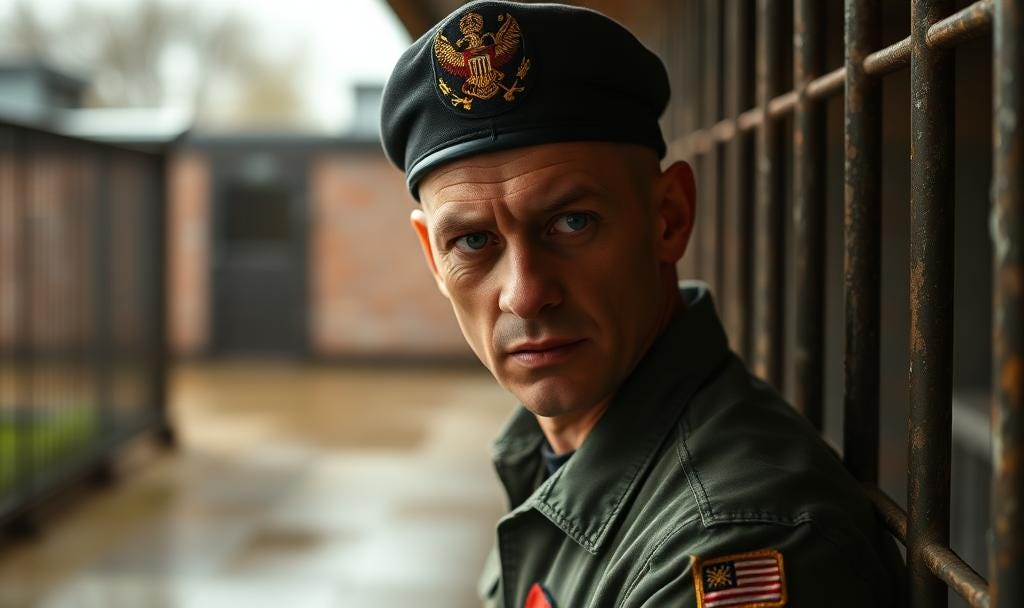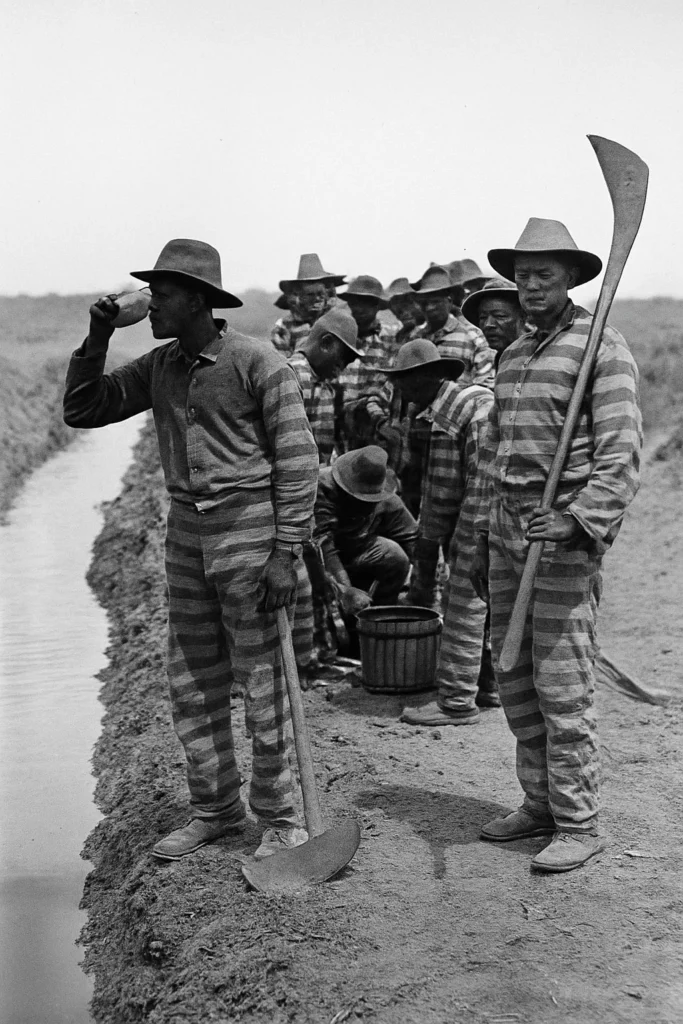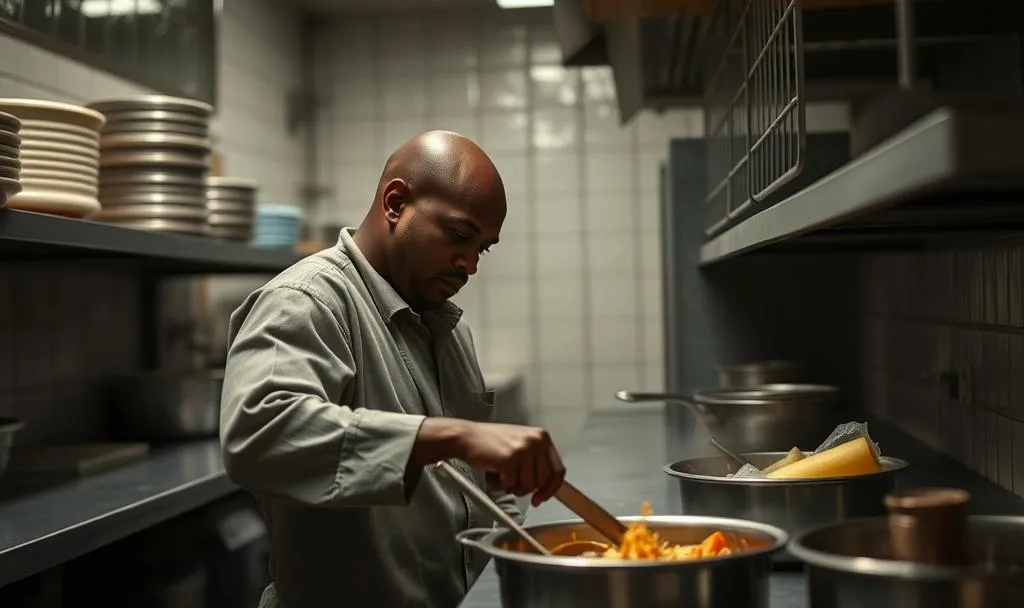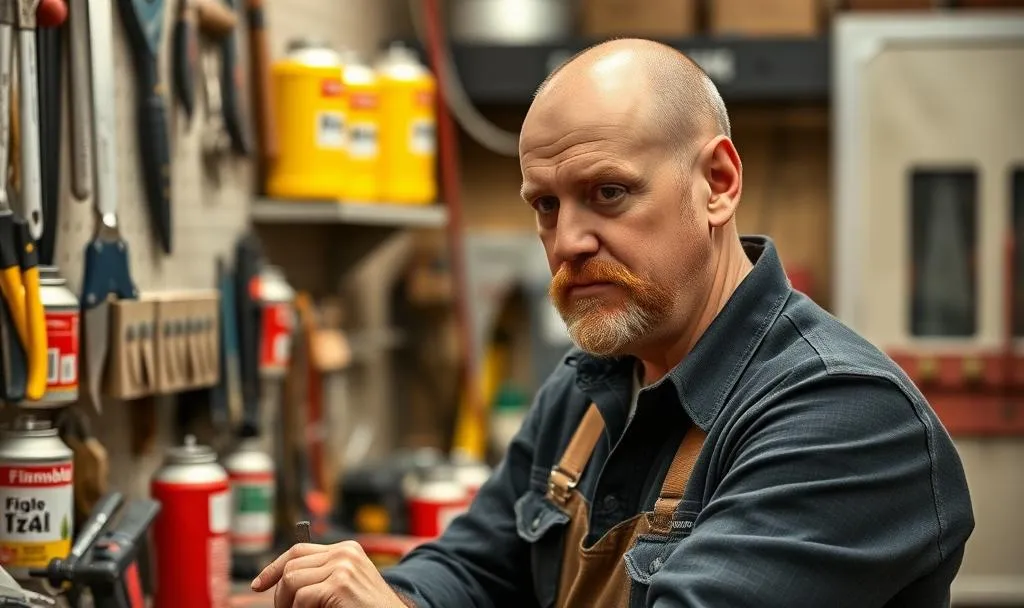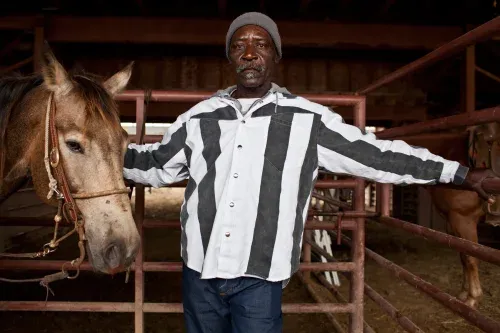Carrying Our Veterans On Our Shoulders
Today I had the honor of being the final speaker at an event/press conference sponsored by Floridians For Alternatives To The Death Penalty and Death Penalty Action. I was joined by 3 other Veterans who are active in representing Veterans and, honestly? I felt a good bit out of my depth. Man, EVERYBODY outranked me! There was a retired Navy Captain, a retired Army Major, a retired Army Sergeant and finally, me, a lowly Airman 1st Class, USAF.
Everybody was smarter than me. Everybody dressed better than me. They were charismatic like you just wouldn’t believe! They all had 20, 30, even 40 years invested in their careers doing exactly what they were doing. And I was the last speaker, so I really faced an uphill battle going into the fight. But I had a clearly distinct advantage in one regard and outranked them all in one aspect – I was the ONLY one in the room who had served 47 years in one of the worst prisons in America. I’m pretty certain that I was the only convicted murderer present (though I cannot be entirely certain of that detail !). LoL!
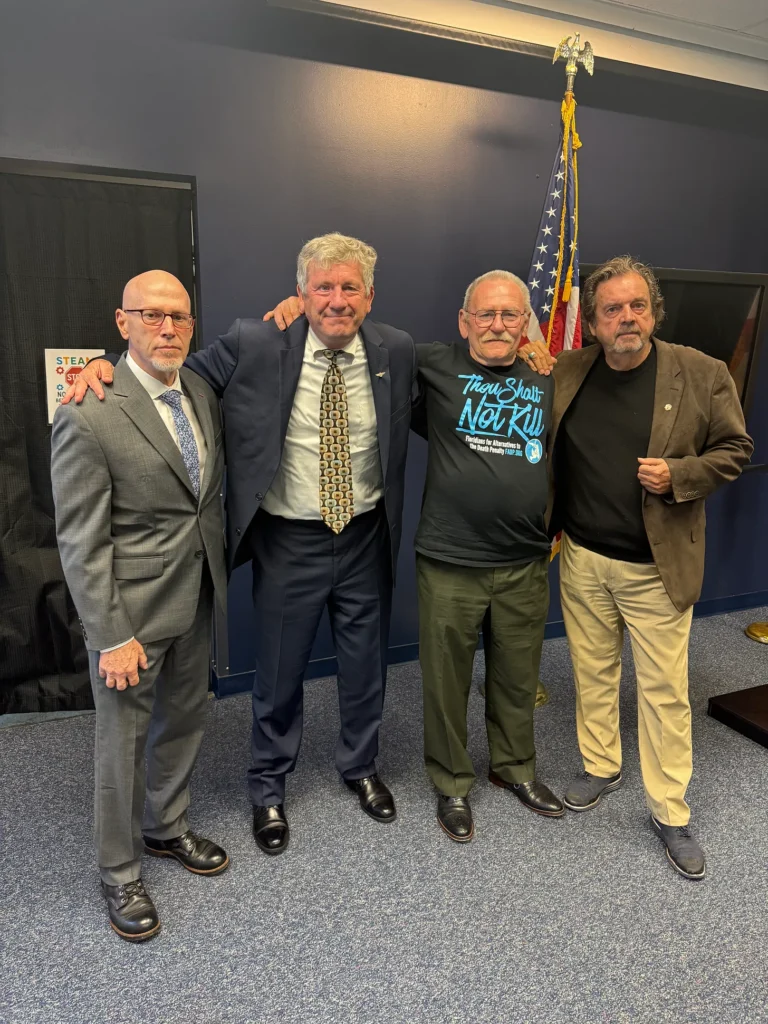
We were all gathered together in a room at the Challenger Learning Center in Tallahassee, Florida, a beautiful complex with scale models of the Challenger spacecraft, an IMAX theater, and a planetarium that will dazzle you.

It was a beautiful setting for a serious discussion on a gruesome event – the pending execution of Kayle Bates, whose execution at time of this writing is scheduled for 6:00pm, August 19, 2025.
The four of us had only met the night before at a dinner organized by the bubbly and energetic Grace Ellen Hanna, the Board Secretary of FADP. I cannot stress enough how calming of a presence Grace carries with her effortlessly, and in all of my moments of vulnerability (frequent!) was there to push me forward. She also served as my personal taxi service for which I am forever grateful.
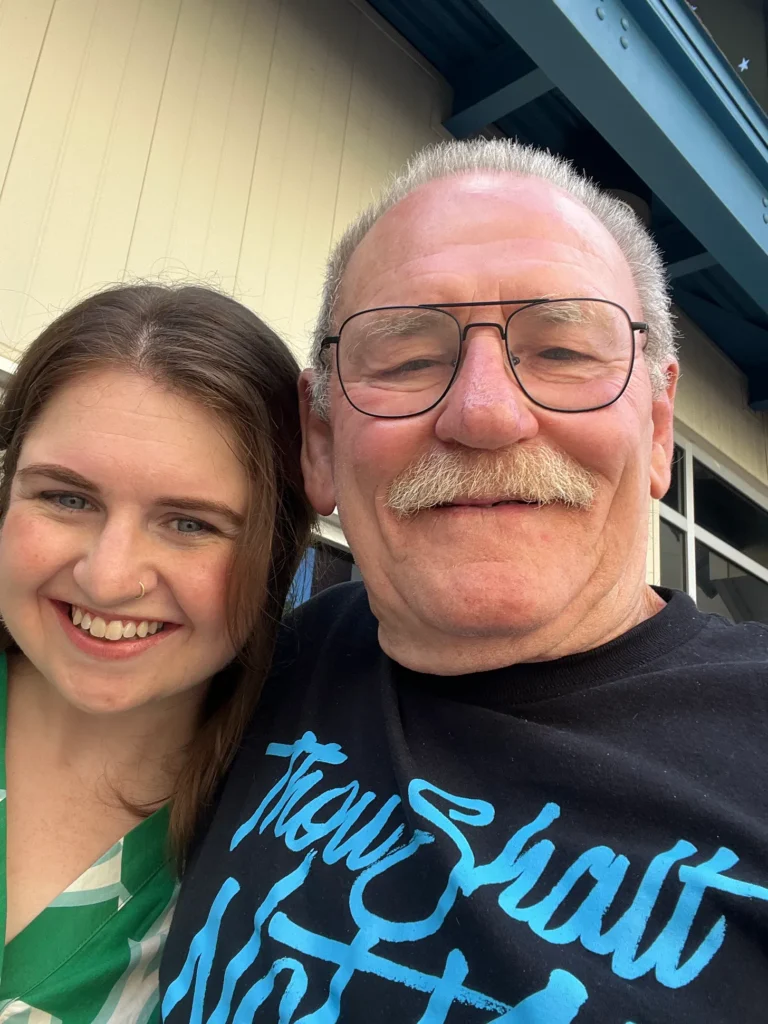
Art Cody was the last to arrive to the dinner due to travel complications, so Dave Ferrier, Tom Dunn and his wife, Millie, (Litigation Attorney, Federal Public Defender Program), Grace and I proceeded to enjoy each other’s company and a great meal. In the process, we discovered that we actually knew other people in each other’s orbit. See, the capital punishment circle is actually very small and it’s like the old adage that “Everybody knows somebody and somebody knows everybody.” Millie knew Federal Public Defenders in Louisiana that I’ve worked with and Dave knew ex-convicts that I had known and seen go home many years before that Dave had worked to prove his innocence.
The reason the circle is small is actually multifold: the job of representing and defending or appealing a death-sentenced prisoner demands a dedication, passion and commitment that very few attorneys possess. The passion comes from believing that every human life is sacred and to put it all very simply
Killing people who kill people to show people that killing people is wrong just doesn’t work. It only kills more people.
The job also requires that a person be able to set aside all of their own biases and prejudices and fight to save this life – this hated and reviled and contemptible life, and that’s a pretty apt descriptor for virtually every single death-eligible prisoner ever to stand trial. But, it’s also the descriptor used by those who wholeheartedly support and actually energize the push for more and faster executions.
I have talked with and interviewed many wardens and high-ranking security officials and they are almost unanimous in their belief that capital punishment does not serve the purpose of deterrence and does much more harm than good. It only creates more victims. The executioners, also, become victims as they are forced to kill another human being with whom they have near-daily contact and become familiar with over time.
And then, there are those who simply take a “clinical” or “sanitized” viewpoint: “It’s a part of the job and I may not like it, but I have to do it so I’ll be humane and kind to him while I do it.” Like shooting him with a bullet made of sugar? Suffocating him with a fragrant and aromatic, flower-scented gas? Hanging him with a rope made of the finest silk? Or, there’s this:
“When Warden Burl Cain came that afternoon to my office, I poured him coffee. He’d hosted a new coroner’s technician for dinner the night before and told me how he’d described the execution to him, to calm his worries: “Four officers will escort Dobie from his cell. The strapdown team is well trained, each officer has an arm or a leg. If he resists, they’ll carry him. They’ll strap him to the gurney and it’ll be over quickly—then you’ll pronounce him dead.” He spoke as matter-of-factly as discussing the weather. I was appalled; Cain was serene. Before leaving, he slipped off to deliver a brand-new “Stone Cold” Steve Austin T-shirt to Dobie—an awkward farewell gift.”
Bill Kissinger, from “The Last Breakfast”, in the Harvard Inquest Magazine.
How do we distance ourselves from this mindset, from this policy-directed death, from this sanitized version of pre-meditated murder? By opposing it, fighting against it and demanding by every possible measure that we abolish it. Here is where the passion and commitment comes in. This is the passion that Tom Dunn carries with him to trial, that Art Cody defends his clients with and that David Ferrier investigates and searches for mitigating evidence with.
Kayle Bates was Tom’s first capital case after leaving the Army. It turned into a decades-long journey with Kayle that continues today.
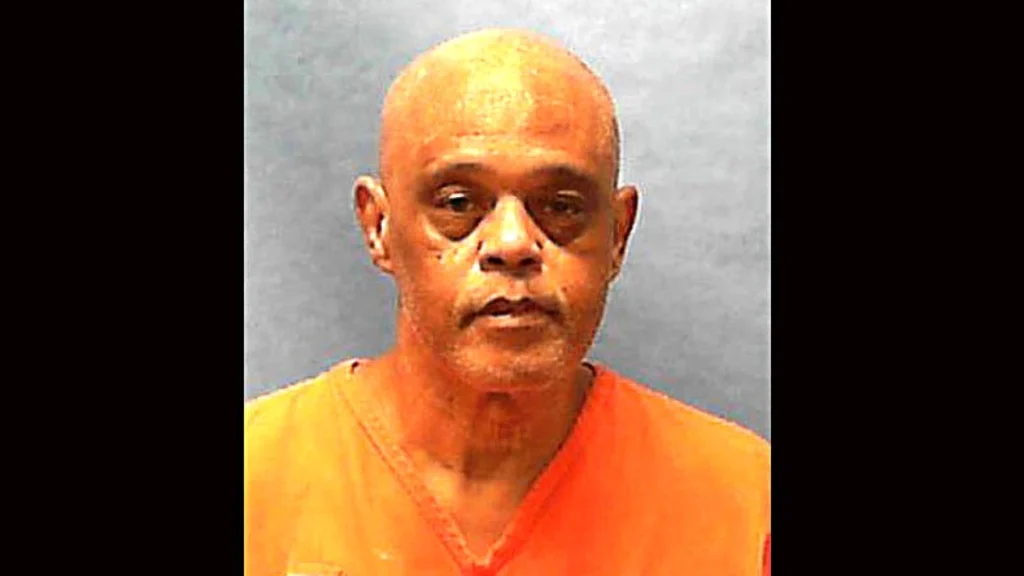
After graduating from high school, Kyle Bates followed his lifetime dream and he enlisted in the military with the Florida National Guard. He served for six years. He participated in the unit’s activation to quell the race riots in Liberty City in Miami in 1980. He also attended and completed the Army’s rigorous jungle training in Panama. Essentially, his wife said after those two incidences, Kyle was different. He had nightmares. He’d wake up screaming loudly, acting crazy, and not recognizing or remembering where he was.
As Art explained, every veteran on death row has service connected, post-traumatic stress disorder, traumatic brain injury, or other service related disabilities. It is a service connected disability because were it not for the fact he served, had he not raised his hand and volunteered for duty, he would not have this mental health problem and would not have committed this crime and never found himself on death row.
Every veteran who served – especially in combat or combat zones – brings home scars that are sometimes plainly visible, and sometimes invisible and unseen, and sometimes don’t manifest themselves for months, years, or even decades later. Such close and frequent association with violent death does not leave one unscathed. Of the general population of the United States, only about 5% are veterans. Yet the segment of veterans on death row is 10%, or twice the rate of normal population. That rate is growing – the United States has been in more wars in the past 30 years than any other period in history. More veterans are exposed to the horrors of war and ever more powerful and destructive weapons.
Sgt. David Ferrier, U.S. Army, a Vietnam veteran and longtime capital defense investigator, talked about how little the system accounts for veterans’ trauma. He said, “In criminal cases, it’s very common that the only person in the courtroom familiar with the veterans’ experience, with the veterans’ military experience, are the veterans themselves.”
He reminded the audience that PTSD is not a new thing, and neither is the state’s neglect of it.
“Although it’s been referred to by many different names over the centuries — soldier’s heart, shell shock, battle fatigue, Vietnam syndrome, post-traumatic stress disorder — it has been part of warfare since ancient times,” Dave said. “It’s written about in The Odyssey, it’s written about in All Quiet on the Western Front. It’s written about in a variety of Vietnam oriented books. Such close and frequent association with violent death in combat does not leave one unscathed.”
And then, it was my turn. I spoke not only as a former Airman First Class, U.S. Air Force, Vietnam veteran and criminal justice reform advocate, but also as an ex-offender who spent 47 years in prison. During much of my time in prison I served as an Inmate Counsel Substitute (paralegal) and much of it working on death row.
When I began, I recalled the lessons of military service from the first day of basic training through tech school and on to the combat zone:
“When a brother is hurting, when a brother is wounded, you run to him, you put him on your shoulders and you carry him as far as you can towards safety.”
I described the day I brought a petition with 4,000 signatures to Governor DeSantis’ office pleading to halt the execution of Edward “Zak” Zakzwreski only 2 weeks before this day on behalf of FADP and Death Penalty Action.
“When I did this, it reawakened something in me and it was hard for me to deal with, but it reminded me that when I went down that hall, I was carrying every veteran on death row with me.”
I also spoke about sitting with a condemned man on death row during his final hours.
I was given permission by the warden to spend the last 24 hours of his life with Dobie Gillis Williams. Dobie, at the time of his execution, was a 39-year-old black man that was tried and convicted by an all white jury with a white prosecutor, a white judge, a white defense attorney, white sheriffs in the courtroom, and he was terrified. The night before his execution, I stood at the bars with him talking to him, and we had his lawyer on the phone and she was just crying and screaming, “Dobie, there’s nothing else I can do! I can’t do anything else.”
I tell that whole story here on Substack in “The Last Breakfast.”
Our veterans are in the same shape. We send them to war. They face the horrors of war. They come home and we ignore them. Governor DeSantis has had the opportunity four times this year to pick a veteran up and put him on his shoulder and carry him to safety. He’s not doing it. Instead, he’s choosing to rush them to the chamber of death and it’s wrong. It is time to stop executions for everyone, but most especially for our most vulnerable, and our most vulnerable are our veterans. They’re the most deserving of our care, our empathy, and they’re deserving of us picking them up and putting them on our shoulders and carrying them to safety.
I sincerely hope that I am able to continue carrying this weight towards safety for at least a bit farther. My appreciation extends to everyone who helps to shoulder the burden and help me carry it. My thanks to Grace, Bridget, Art, Dave, Tom and Millie, and to all the unseen hands that help to make it a little bit lighter.


